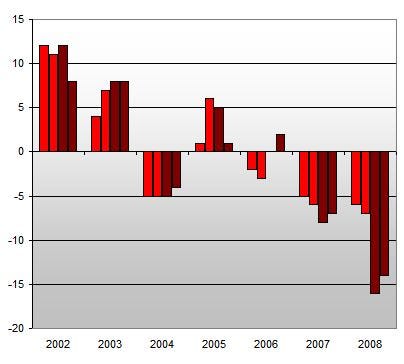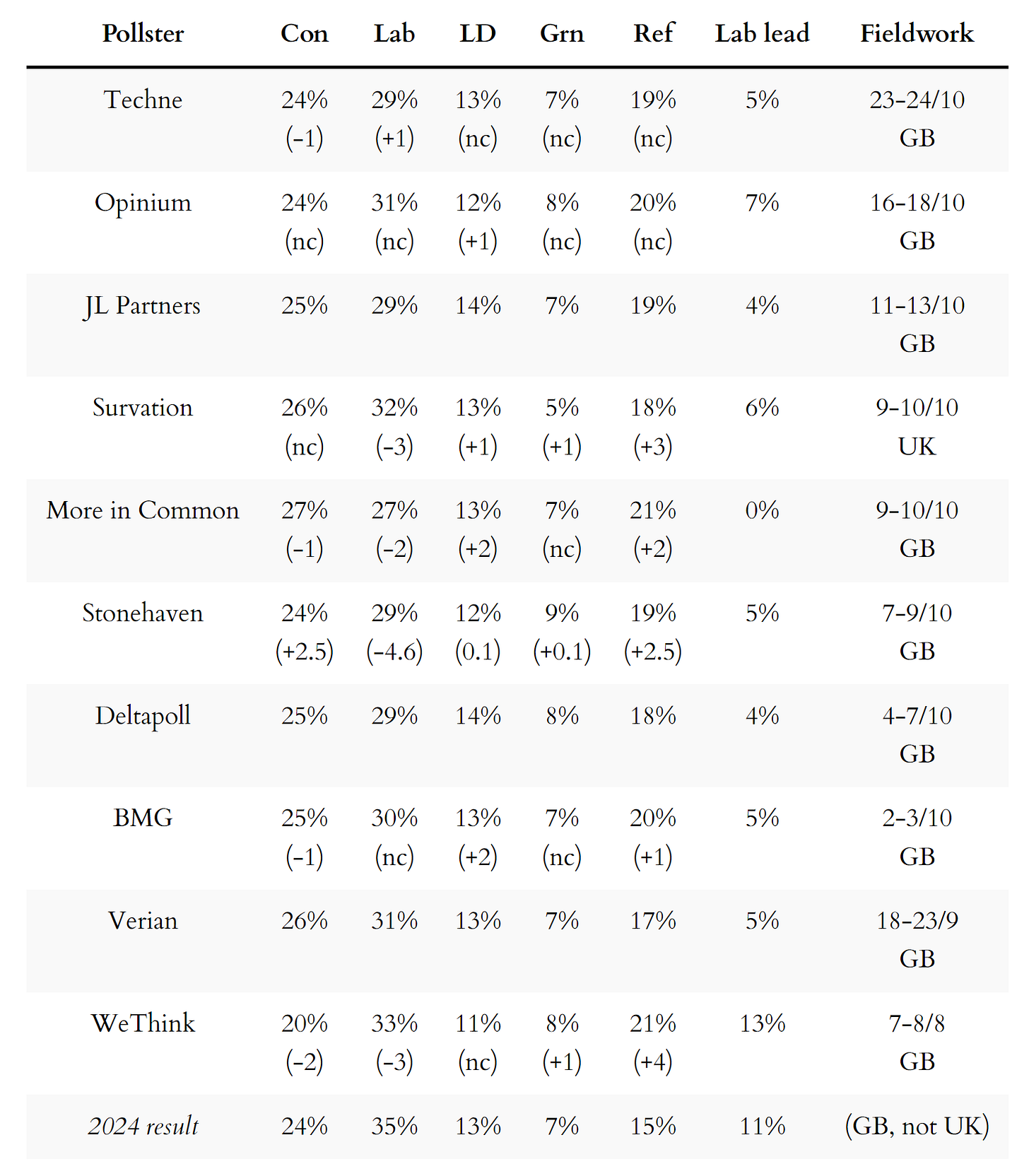Welcome to the 132nd edition of The Week in Polls (TWIP), which, with another Budget looking, dusts off and updates my earlier piece about the myth of Budget poll bounces.
Then it’s a summary of the latest national voting intention polls and a round-up of party leader ratings, followed by, for paid-for subscribers, 10 insights from the last week’s polling and analysis.
If you’re not yet a paid-for subscriber, sign up now for a free trial to see what you’re missing:
Finally, before we get to the main business, if you are wondering how to fill those winter nights, the full 1970 election night coverage from the BBC is up on iPlayer. Even knowing the outcome, it’s a darn dramatic turn of events as expectations of a Labour win are first queried by the very first election night exit poll in the UK, held in just the one constituency and which David Butler, wrongly as it turns off, gently disparages. But then as the results come in, it is the exit poll that is right and the expectations, along with other polls, there are wrong.
Plus there is the fun of there being two Ted Heaths on the same ballot paper.
The 1970 election was the first big polling disaster in Britain, which you can read all about in my book.
Want to know more about political polling? Get my book Polling UnPacked: the history, uses and abuses of political opinion polling.
The myth of Budget poll bounces
In the run-up to a Budget, and immediately after one, there is often plenty of speculation about whether it will give the government a bounce.
But do Budgets really move the polls?
Short answer: no.
For the longer answer, featuring graphs, let’s start with the original analysis of Labour Budgets by Anthony Wells which inspired me to look at the question again:
The graph below shows the Labour lead in two YouGov polls immediately before the last seven budgets, and the two YouGov polls immediately after each one.
As you can see, there is hardly a history of Budgets leading to big improvements in Labour’s position. They crept up a point in 2003, but realistically 2006 is the only one where the budget can really have been said to have resulted in a boost for the government (for the record, there was nothing particularly outstanding in the 2006 budget.2 There were no real headline grabbing tax changes and the centerpiece was simply more money for schools).
That was then. How about now?
I’ve done a similar piece of analysis for all the Budgets with a Conservative Chancellor from 2010 up until this March. As with Anthony’s previous analysis, I’ve taken the two YouGov polls from before the Budget and the two YouGov polls from after the Budget to compare things.3
Here’s what that analysis shows: an average boost in the Conservative vote share of… +0.1 points.
That’s an average which mixes in falls and rises, but even the absolute average change is only 1.1 points.
Only two of the 17 Budgets saw a change of 3 points or more, and one of those saw a fall rather than a rise in government support:4
In the short term,5 budgets don’t bounce much.6 And the biggest bounce is both cases was down, not up.
Budgets can matter, certainly. They can matter long-term in the polls for the impact they make on the economy and on the nation, which in turn raises or reduces the government’s poll ratings in years to come. They can matter politically too, for setting a picture of the sort of government we have. (Personally, I think it will be much clearer what sort of PM Starmer will be once we have seen his government’s first Budget.)
But all the short term stuff about moving the voting intention polls or not?
That isn’t what Budgets do and isn’t how we should view them.
An Antipodean digression: previous analysis in Australia concluded that Budget bounces are an urban myth.
Voting intentions and leadership ratings
Here are the latest national general election voting intention polls, sorted by fieldwork dates:
Next, a summary of the latest leadership ratings, sorted by name of pollster:
For more details, and updates as each new poll comes out, see my regularly updated tables here and follow The Week in Polls on Bluesky.
For the historic figures, including Parliamentary by-election polls, see PollBase.
Last week’s edition
Do voting intention polls matter this early in a Parliament?
My privacy policy and related legal information is available here. Links to purchase books online are usually affiliate links which pay a commission for each sale. Please note that if you are subscribed to other email lists of mine, unsubscribing from this list will not automatically remove you from the other lists. If you wish to be removed from all lists, simply hit reply and let me know.
What are voters wanting from the Budget?, and other polling news
The following 10 findings from the most recent polls and analysis are for paying subscribers only, but you can sign up for a free trial to read them straight away.
Keep reading with a 7-day free trial
Subscribe to The Week in Polls to keep reading this post and get 7 days of free access to the full post archives.







